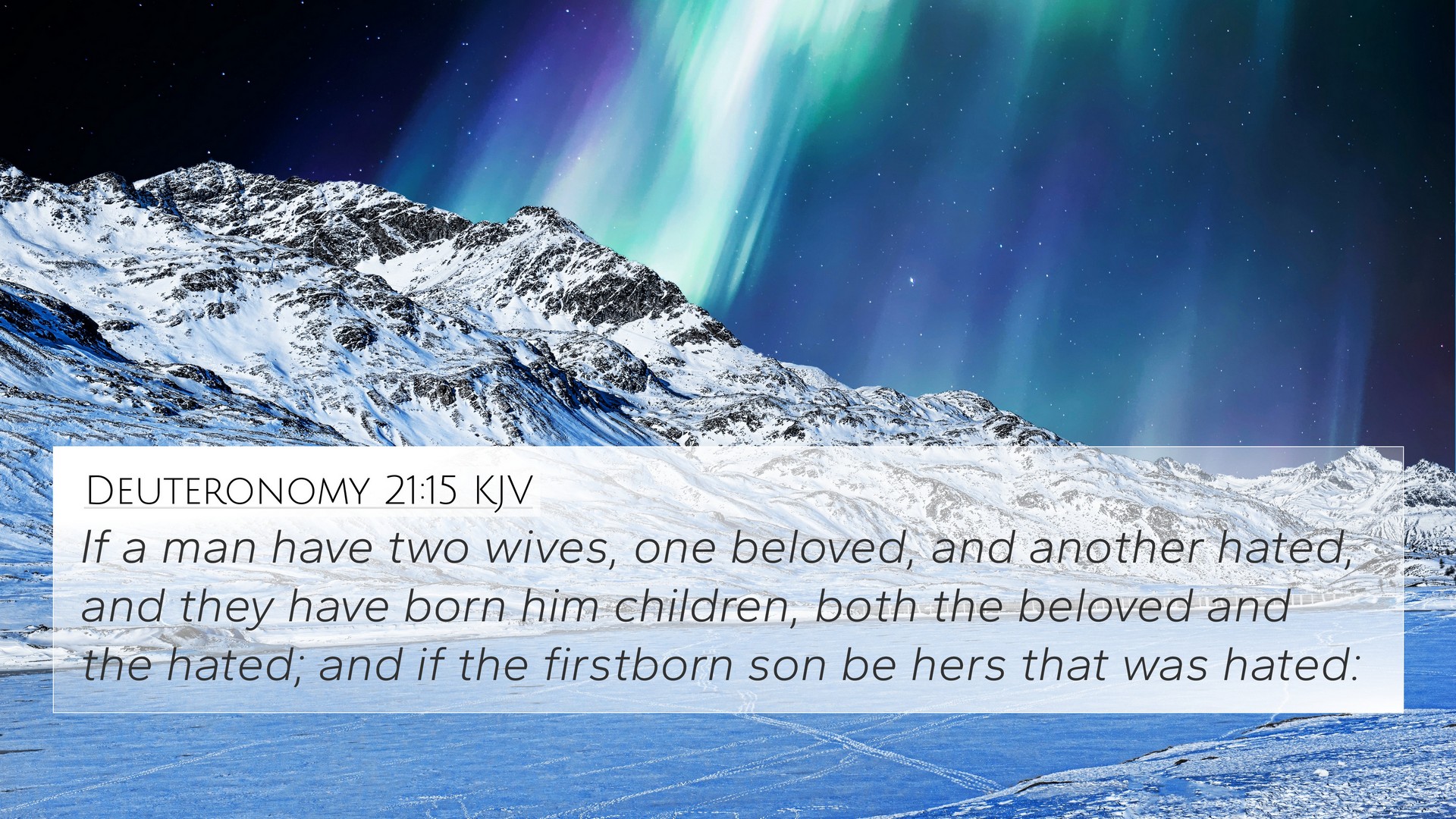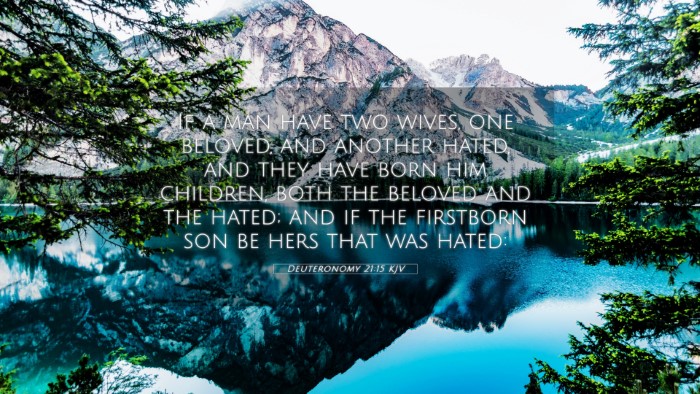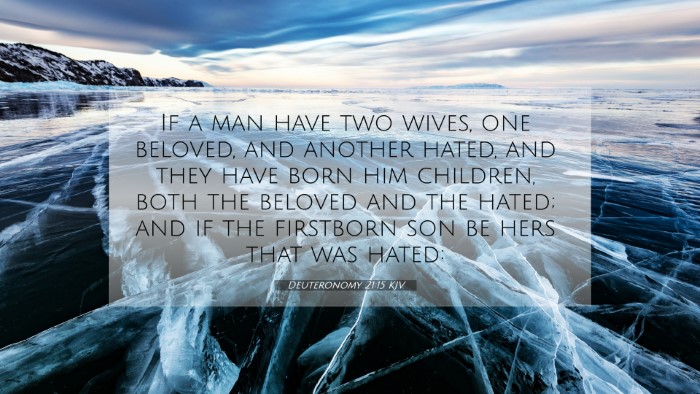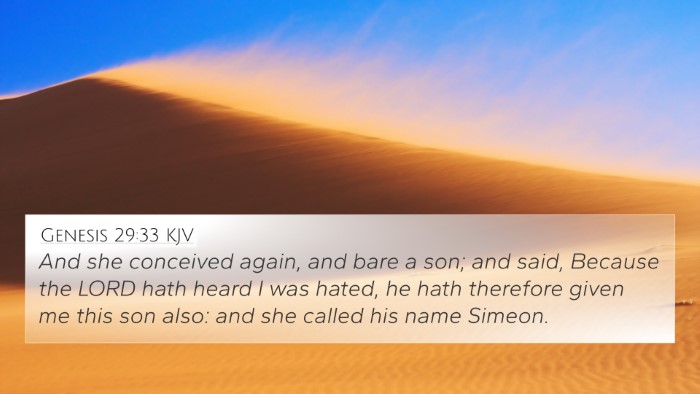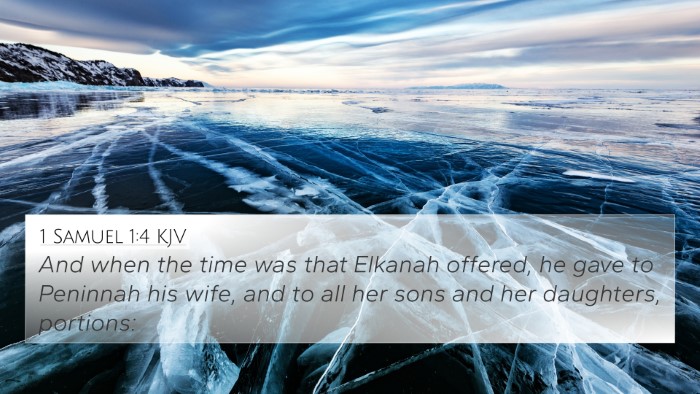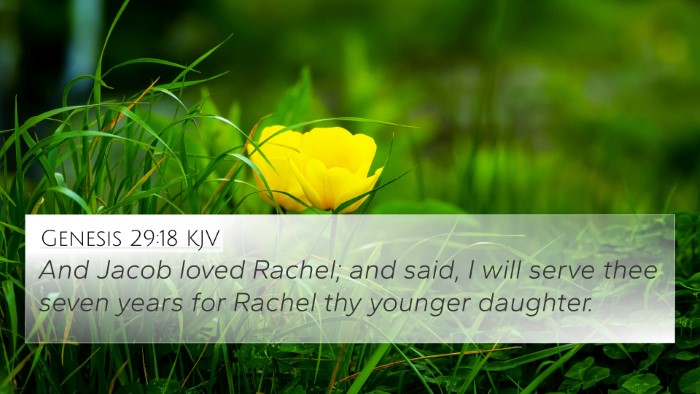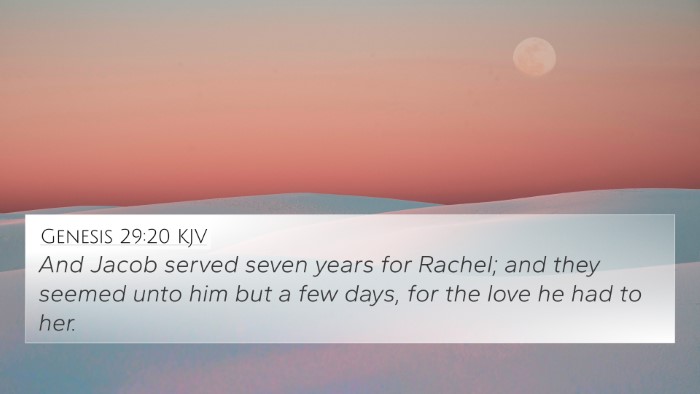Understanding Deuteronomy 21:15
Deuteronomy 21:15 states: "If a man has two wives, one loved and the other unloved, and they have borne him children, both the loved and the unloved, and if the firstborn son is of her who is unloved." This passage addresses the complexities arising from polygamy and the implications for inheritance rights, offering insight into relationships and societal norms during the ancient Israelite era.
Commentary Insights
This verse raises significant theological and social considerations. By checking the commentaries, we can gain a deeper understanding of its implications:
- Matthew Henry: He notes that this verse highlights the often difficult dynamics in families with multiple wives, emphasizing that God's laws seek order and justice. Henry stresses that while the practice of polygamy was tolerated, it creates tensions and complications that God’s law aims to address.
- Albert Barnes: Barnes explains the inheritance rights of the firstborn, underlining the importance of treating the unloved wife’s children just as fairly as those from the loved wife. This reflects the broader principle of equity in family matters and demonstrates God’s concern for justice.
- Adam Clarke: Clarke elaborates on the sociocultural context of the time, indicating this verse serves as a guideline to ensure fair treatment within a family structure. He suggests that although God permitted certain practices, His intention was to guide toward moral conduct that fosters fairness and compassion.
Thematic Connections
Deuteronomy 21:15 serves as a pivotal scripture that connects with several broader themes in the Bible, including justice, family dynamics, and the sanctity of marriage. To better understand these themes, we can turn to various Bible verse cross-references.
Bible Verses That Relate to Deuteronomy 21:15:
- Genesis 29:30-31 - Discusses Jacob’s love for Rachel over Leah, setting a stage for family tensions due to favoritism.
- 1 Samuel 1:5-6 - Explores the feelings of a mother dealing with rivalry in a polygamous setting.
- Matthew 19:4-6 - Jesus highlights the intention for monogamous marriage, reinforcing the original design for family relationships.
- Galatians 3:28 - Promotes equality among believers, reminding us that in Christ, human divisions are diminished.
- Exodus 21:15-17 - Similar laws regarding family relationships and the valuation of children are presented within the Mosaic Law.
- Proverbs 15:17 - Emphasizes that better is a meal of vegetables where there is love than a fattened ox where there is hatred, fitting for understanding familial relations.
- 1 Timothy 5:8 - Stresses the importance of providing for one's family, which correlates to the duties towards children from different mothers.
Applying Cross-Referencing in Bible Study
Using tools for Bible cross-referencing, one can gain a comprehensive understanding of how themes interrelate. Cross-references can empower believers to explore how the Bible addresses nuanced issues, such as relationships affected by cultural practices like polygamy.
Practical Steps for Effective Bible Cross-Referencing:
- Study with a Bible concordance: Utilize a tool that lists words and themes, helping you find related scriptures.
- Engage with a cross-reference Bible study: Choose a verse and follow connections to see how different passages converse with each other.
- Utilize a comprehensive Bible cross-reference guide: This can help categorize scripture relations thematically.
Conclusion
Deuteronomy 21:15 is an evocative verse that invites deeper exploration of God’s laws on family and inheritance rights. By understanding and linking these scriptures through inter-Biblical dialogue, believers can learn valuable lessons about equity, justice, and God’s design for relationships.
Continued study and reflection using Bible cross-reference resources not only enriches knowledge but also enhances personal application within the context of faith.
